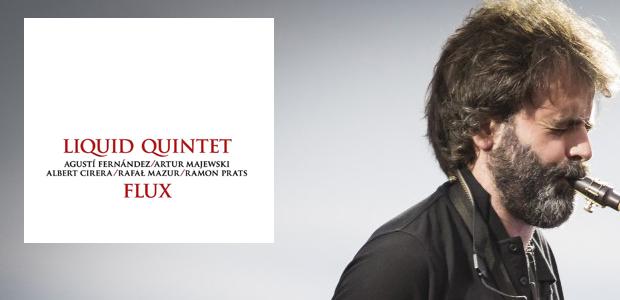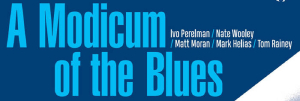Albert Cirera – “Bach is the best to clean your house to.”

Catalan saxophonist, Albert Cirera is divided into three musical scenes: in Barcelona, Copenhagen and Lisboa. He told me about differences in those places, his most demanding projects and his classical’s inspiration.
Agusti Fernándes was your teacher and now you are performing on one stage and record with him. What is the most relevant thing, that you’ve learned from him?
Agustí is a really important person in my development as a musician. For me there are two things that I will remind from him. I hope I can be as active, when I will reach his age, playing and performing, but mostly I would like to keep in searching and developing new sounds, new language, as he does. The second thing is to help, play and share all the wisdom, histories, and energy among the young musicians, and the people that are interested in this very special music.
Recently you’ve recorded a new cd with Zlatko Kaucic – great drummer and performer from Slovenia. How your cooperation with him had begun? And what is the most important in it for you?
Zlatko invited me to play at Brda Contemporary Music Festival, in Smartno, a festival that he curates and runs. He suggested me to play with Silvia Boglonesi. We played in duo with Silvia, and the next morning, taking the chance that Michel Moor was there, as well as Marco Colonna, we did a recording session. It took place in an amazing Church, were Colonna played solo at the same festival, with an amazing acoustics. For me, it was the first time playing with Zlatko and all the other musicians. It was a great session.
On the “Morning Patches” there is group of five musicians, and three of them play on woodwind instruments. Why have you guys decided for this kind of instrumental concept?
As I said before, everything was improvised. So we arrived at the church, and we were flipping out with the sonority of it. So we were just listening to each other trying to create nice sounds, and effects from the combination of all the instruments. I remember that the only thing, that we talked before the recording, was a suggestion to create small groups, besides play the five of us all the time together. The rest of it we wanted to left to to the magic and the listening to each other.
You originate from classical music. Does it still influence your musical work? Which composers are your beloved ones?
Yes, I started playing violin, and yes, it really influenced me. Not the instrument itself, but all the orchestral work that I did under the conduction of Jordi Mora, a Sergiu Celibidache disciple. During those years I’ve learned a lot about music, sound, proportions, phenomenology.... He was really into Romanticism, so I played and worked a lot of Beethoven, Schumman, Mendelssohn, Sibelius... I really like Romanticism, all the harmonies, the leading voices... After starting with the improvisation the variety become bigger. Stavinsky, Feldman, Mesian ... Nowadays I'm listening a lot to Penderecki and Lutosławski, as well as minimalistic composer like Arvo Part or Steve Reich. I'm always changing. Bach is the best to clean your house to.
You are still a young musician. With every project you seemed to be more and more brave in your musical ideas and ways of improvisations. Do you consider yourself as already “fully formed musician”?
Haha. Thanks for the young musician! Actually I don't consider myself as a young musician. Nowadays really young musicians are coming with great formations and amazing ideas, but maybe I am a young musician in this world of the impro music? I try to ask myself all the time is my music enough fresh. That's why now I'm taking a Master Of Performance at RMC in Copenhagen, surrounded with a lot of YOUNG musicians. I hope I will never feel as a fully formed musician. It is the only way to keep searching and developing, and try to feel always young, in a way.
You play with Ramon Prats for a quite long time in DUOT. What is so special in this project? Do you prefer improvisation in such a small groups?
Whit Ramon we've been playing for more than 10 years together, and we still have the same yearning to play together. For me is the most difficult project. To play with him is always a pleasure and a challenge, and to keep the music fresh, of course. To play in small formations is easier, that to play in large bands. More easy because it is like a dialog, is more direct, if there is connection the music will be great and interesting, if not, the music could be lame. But there is still some interesting things happening, somehow. For ad hoc concerts I prefer much small formations like duos or trios. In a large band, should be better to rehearse and look for some idea, aesthetics to play in common. If not, it ends up with the same sounds during all the night. I think that I prefer to play in small formations, but sometimes large ones can be fun.
You are divided into three big improvising scenes: Spanish, Portuguese and Danish. Can you point some differences in approach to improvisation, of musicians from those countries?
I know the scenes from three different cities: Barcelona, Lisboa, and Copenhagen. Actually is a very hard questions, even though there are some differences between them, there are also a lot of differences beetween the musicians that form each of the scene. Lisboa is a small city with a huge tradition of impro music, there are a lot of different approaches within the scene, but a common word that pups me up to define Lisboa scene is “anarchy”. Barcelona is a small scene, growing up and trying to be part of the European scene. For me is a scene that is developing but a common word that pops me up is “respectfulness”. And the scene from Copenhagen is huge, has a lot of musicians, and a lot of musicians from everywhere, so it is very different from one concert to another, but a common phrase to describe it is “try it”!
What can we wish you for the upcoming year 2020?
For this 2020 I want to get rid of the master what I'm doing. Besides, play 40 solo concerts along the year, hope some in Poland, at least two... Play more with Duot, Florian Stoffner, Nicolas Field, and many others, record my second solo album, and come back to Barcelona and be part of the growing scene there. I hope I will be able to do everything! Ah! And run the Copenhagen marathon, if my ankles let me do it.
- Aby wysyłać odpowiedzi, należy się zalogować.







